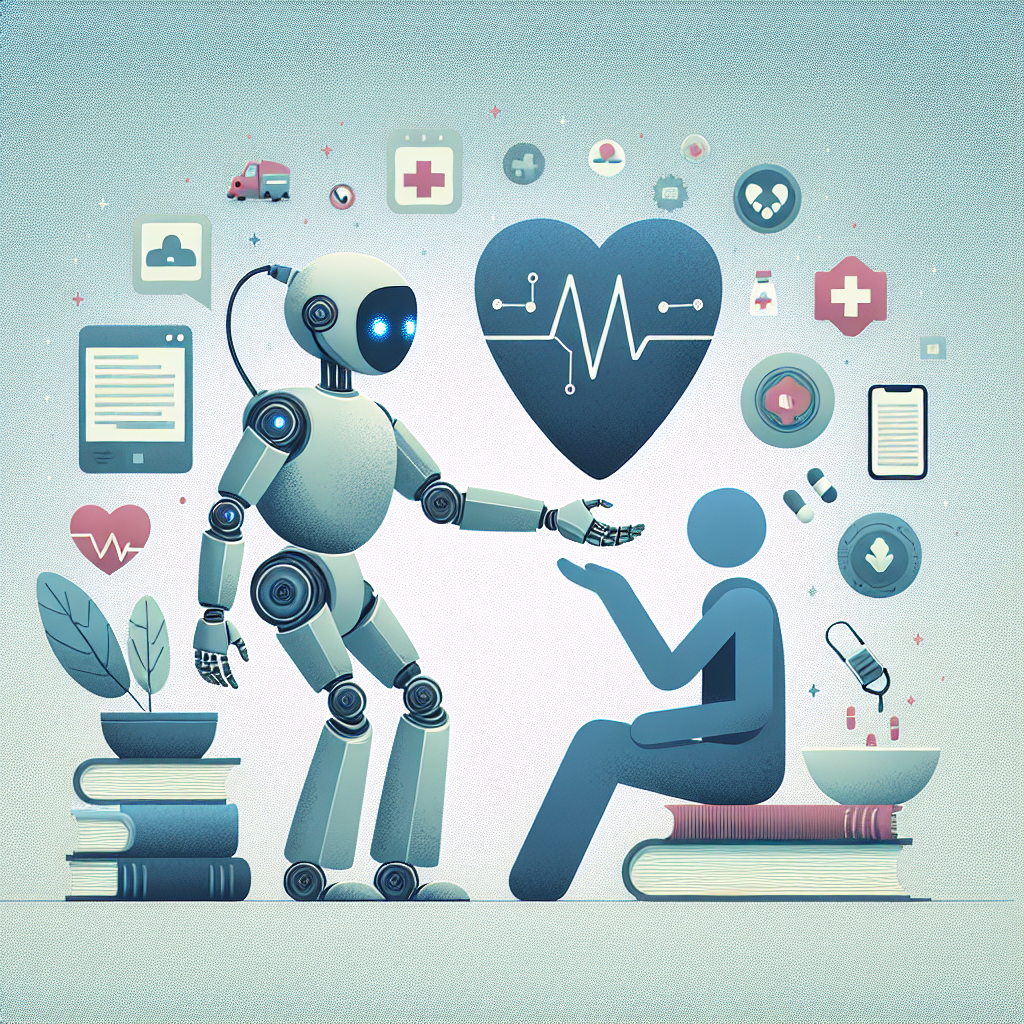Conversational AI in Mental Health: Providing Support and Resources
In recent years, the field of mental health has seen a significant shift towards utilizing technology to provide support and resources to individuals in need. One of the most promising advancements in this area is the use of Conversational AI, also known as chatbots, to offer personalized and accessible mental health assistance. These AI-powered chatbots are designed to engage in conversations with users, providing emotional support, resources, and even therapy in some cases. This article will explore the benefits of Conversational AI in mental health, how it works, and some common FAQs about this technology.
Benefits of Conversational AI in Mental Health
There are several key benefits to using Conversational AI in mental health. One of the main advantages is the accessibility it provides to individuals who may not have access to traditional mental health services. Many people struggle to find affordable or convenient therapy options, and chatbots offer a way to receive support anytime, anywhere.
Additionally, Conversational AI can help reduce the stigma associated with seeking mental health assistance. Some individuals may feel uncomfortable talking to a therapist in person, but they may be more willing to open up to a chatbot. This can be particularly helpful for individuals who are hesitant to seek help due to fear of judgment or shame.
Another benefit of Conversational AI in mental health is the ability to provide personalized support. These chatbots can be programmed to tailor their responses to individual needs, offering resources and advice that are specific to the user’s situation. This personalized approach can help users feel heard and understood, which is crucial for effective mental health support.
How Conversational AI Works in Mental Health
Conversational AI in mental health works by utilizing natural language processing (NLP) to engage in conversations with users. These chatbots are programmed with a set of responses and resources based on common mental health issues, such as anxiety, depression, and stress. Users can interact with the chatbot by typing or speaking their responses, and the AI will provide support and guidance based on the user’s input.
Chatbots in mental health are designed to be empathetic and supportive, offering a listening ear and practical advice to help users manage their mental health. Some chatbots also use cognitive behavioral therapy techniques to help users challenge negative thought patterns and develop coping strategies for their symptoms.
Common FAQs about Conversational AI in Mental Health
1. Is Conversational AI in mental health effective?
While Conversational AI is still a relatively new technology in mental health, research has shown promising results in terms of its effectiveness. Several studies have found that chatbots can help reduce symptoms of anxiety and depression, improve mood, and increase self-awareness in users. However, it is important to note that chatbots are not a replacement for traditional therapy, and individuals with severe mental health concerns should seek professional help.
2. Is Conversational AI in mental health confidential?
Most Conversational AI platforms in mental health are designed to prioritize user privacy and confidentiality. Chatbot conversations are typically encrypted to protect user data, and users can choose to remain anonymous if they wish. However, it is important to read the privacy policy of the chatbot platform to understand how your data will be used and stored.
3. Can chatbots in mental health provide crisis intervention?
While chatbots are not equipped to provide crisis intervention for life-threatening situations, some platforms offer resources and referrals to emergency services when necessary. If you are in crisis or experiencing thoughts of self-harm, it is important to seek help from a mental health professional or contact a crisis hotline immediately.
4. Are Conversational AI platforms in mental health free to use?
Many Conversational AI platforms in mental health are free to use, as they are often funded by grants or donations. However, some platforms may offer premium services or subscriptions for additional features. It is important to research different chatbot options to find one that fits your needs and budget.
5. How can I find a reputable Conversational AI platform in mental health?
When looking for a Conversational AI platform in mental health, it is important to consider factors such as user reviews, credentials of the developers, and privacy policies. Look for platforms that are transparent about their methods and outcomes, and consider seeking recommendations from mental health professionals or support groups.
In conclusion, Conversational AI has the potential to revolutionize the field of mental health by providing accessible, personalized support to individuals in need. While chatbots are not a replacement for traditional therapy, they can offer valuable resources and guidance to help users manage their mental health. As this technology continues to evolve, it is important to consider the benefits and limitations of Conversational AI in mental health and seek professional help when needed.

